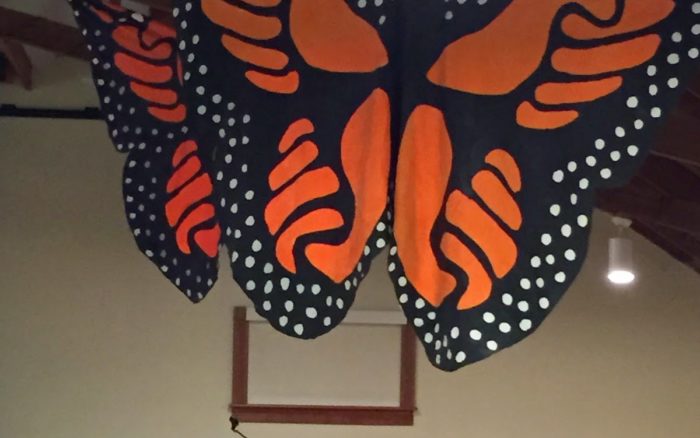Supporting Pollinators and Future First!
I wish that you could be here with me at this Future First! Women’s Conference in Minneapolis, Minnesota. The conference began with a panel of women experts in bee populations, birds, butterflies–particularly Monarchs– and on our food sources. We are being given an honest appraisal, and the news is not good. One half of all the birds in United States are at risk of extinction in the next 80 years due to projected temperature changes, changes in precipitation, and changing seasons. One third of honey bee populations are lost every year since 2006 due to poor nutrition, pathogens, and pesticides, and, I might add, apiary practices. And Monarchs, a flagship species, are seriously declining.
I am heartened by the tone of the conference which at once accepts the seriousness of our plight (and presents the research that documents the shifts and changes upon us due to mankind’s actions), and yet, provides hope that we can do something so that all is not lost. I will be sharing some of this over this week here and on www.patriciadamery.com.
Perhaps one of the most exciting ideas to me from the opening evening is the importance of planting milkweed. This is the only host plant of Monarchs, which means that it is the only plant the Monarch can lay her eggs upon and the resulting caterpillars use as food. After the destruction of the prairies in the Midwest, in which various kinds of milkweed flourished, milkweed grew in the vast fields of corn and soybeans. My sister and I hated milkweed as teenagers, as we spent many summer hot days cutting them out of soybeans. And yet, those milkweeds supported the monarch populations. (As a teenager during the Second World War, my husband collected the pods to use in life vests for the soldiers.)
Then came herbicides, which knock out any sprout of milkweed that dares to push its leaves into the sun. So now Monarch populations are threatened.
What we can do is this: plant pollinator gardens around our homes which include native species of milkweed. In fact you can plant a Monarch Way Station, info at https://www.monarchwatch.org
